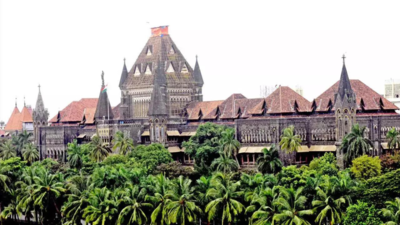- News
- India News
- Dawoodi Bohra succession row: Bombay HC dismisses suit against appointment of Syedna Mufaddal Saifuddin
Trending
Dawoodi Bohra succession row: Bombay HC dismisses suit against appointment of Syedna Mufaddal Saifuddin
Bombay high court's ruling on the Dawoodi Bohra leader appointment lawsuit emphasized evidence over faith. The dispute showcases succession complexities and religious doctrine challenges within the community.

Bombay High Court
NEW DELHI: The Bombay high court made a decision on Tuesday regarding a 2014 lawsuit challenging the appointment of Syedna Mufaddal Saifuddin as the leader of the Dawoodi Bohra Community. Justice Gautam Patel, on a single bench, emphasised that the court's ruling was "only decided on the issue of proof and not faith".
The suit was originally filed by Khuzaima Qutbuddin after the passing of his brother and the then leader, Syedna Mohammed Burhanuddin, in 2014.Following Burhanuddin's death, Mufaddal Saifuddin assumed the role of Syedna. In 2016, Qutbuddin's son, Taher Fakhruddin, took over the lawsuit claiming his father had passed on the powers to him.
The lawsuit aimed to prevent Saifuddin from carrying out his duties as Syedna. Qutbuddin asserted that Burhanuddin had appointed him as the mazoon and secretly anointed him as his successor through a private "nass" before the public announcement in 1965. Fakhruddin argued that his father had designated him for the position before his passing. Justice Patel, in dismissing the suit, emphasized maintaining neutrality and focusing on the evidence presented.
The Dawoodi Bohras, a Shia Muslim denomination, have a significant presence in India and globally, with a strong tradition in trade and entrepreneurship. The community follows the appointment of a successor through "divine inspiration" and the conferral of a "nass" to a deserving member. The lawsuit also sought to restrict Saifuddin from acting as the community's top religious leader, known as the Dai-al-Mutlaq. It alleged that Saifuddin had taken over leadership in a fraudulent manner and requested access to Saifi Manzil, the Syedna's residence in Mumbai.
The court's ruling addressed the specific legal aspects of the case, emphasising the importance of evidence over matters of faith. The dispute within the Dawoodi Bohra Community highlights the complexities surrounding leadership succession and religious doctrine within the community.
(With inputs from agencies)
The suit was originally filed by Khuzaima Qutbuddin after the passing of his brother and the then leader, Syedna Mohammed Burhanuddin, in 2014.Following Burhanuddin's death, Mufaddal Saifuddin assumed the role of Syedna. In 2016, Qutbuddin's son, Taher Fakhruddin, took over the lawsuit claiming his father had passed on the powers to him.
The lawsuit aimed to prevent Saifuddin from carrying out his duties as Syedna. Qutbuddin asserted that Burhanuddin had appointed him as the mazoon and secretly anointed him as his successor through a private "nass" before the public announcement in 1965. Fakhruddin argued that his father had designated him for the position before his passing. Justice Patel, in dismissing the suit, emphasized maintaining neutrality and focusing on the evidence presented.
The Dawoodi Bohras, a Shia Muslim denomination, have a significant presence in India and globally, with a strong tradition in trade and entrepreneurship. The community follows the appointment of a successor through "divine inspiration" and the conferral of a "nass" to a deserving member. The lawsuit also sought to restrict Saifuddin from acting as the community's top religious leader, known as the Dai-al-Mutlaq. It alleged that Saifuddin had taken over leadership in a fraudulent manner and requested access to Saifi Manzil, the Syedna's residence in Mumbai.
Qutbuddin maintained that Burhanuddin privately designated his half-brother as his successor, urging him to keep it confidential, a commitment Qutbuddin honored until his death. Saifuddin contested these claims, stating that the alleged nass from 1965 lacked witnesses and could be challenged. He cited a more recent conferral of nass in 2011, witnessed at a London hospital, as per the Dawoodi Bohra faith's doctrines.
The court's ruling addressed the specific legal aspects of the case, emphasising the importance of evidence over matters of faith. The dispute within the Dawoodi Bohra Community highlights the complexities surrounding leadership succession and religious doctrine within the community.
(With inputs from agencies)
End of Article
FOLLOW US ON SOCIAL MEDIA











